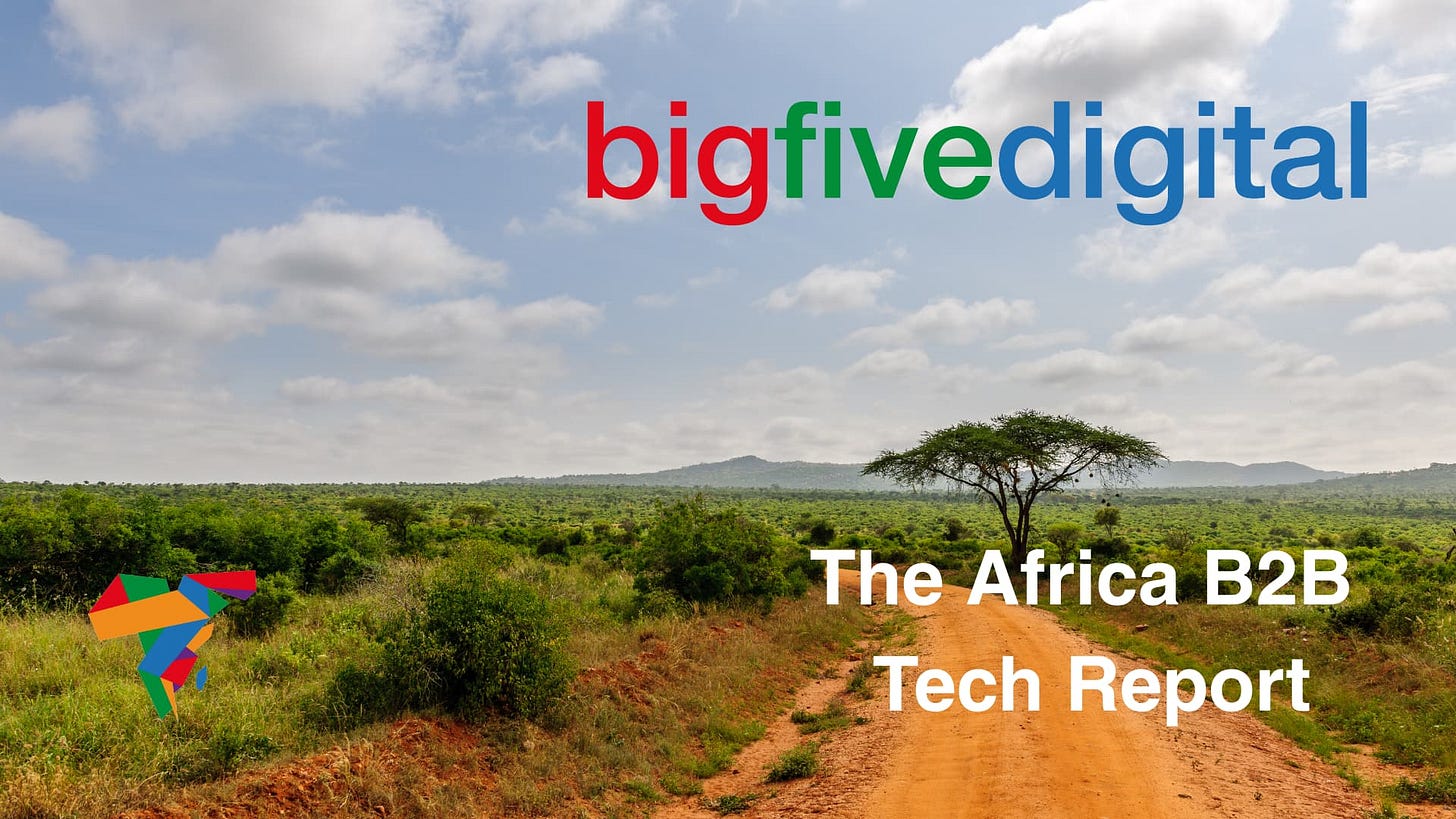The Africa B2B Tech Report
Issue No. 94. Africa-Middle East B2B tech news & insights for 14 July 2025.
The Africa B2B Tech Report offers regular news and insights on the development of B2B technology in Africa and the Middle East. We cover the ecosystem of partners, builders, and developers that make emerging tech work for African businesses.
The Report is written by Charles Laughlin, Co-founder & Editor-in-Chief for BigFive Digital. Charles is an indep…
Keep reading with a 7-day free trial
Subscribe to The Africa B2B Tech Report to keep reading this post and get 7 days of free access to the full post archives.



